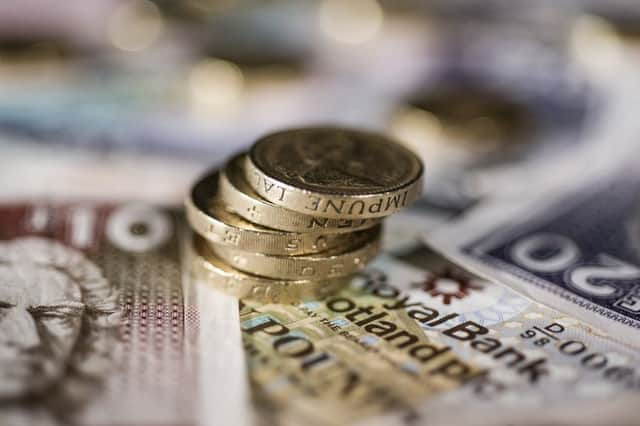Malcolm Parkin: Banks are guilty of a giant fiscal fraud


These annual deficits have piled up and are known as the National Debt. Interest on this debt, payable to banks and other financiers, is presently about £50 billion every year, and this has to be paid before anything can be spent on things that we actually need, such as new roads, or the NHS.
The National Debt is about £1.5 trillion, and this sum is now beyond repayment. Not that the banks need to be repaid, because most of this money never actually existed in the first place. The banks have not lent this money from the deposits of savers, or from shareholders funds. This money did not belong to others, to whom they would have had to pay interest, and who would have been deprived of the use of that money.
Advertisement
Hide AdAdvertisement
Hide AdThey have created that money from nothing. They are charging interest on digital money that they have created in cyber space, at no cost to themselves. The banks create the public money supply. It is a gigantic fiscal fraud.
Consumer debt is now a staggering £1.8 trillion, and once again most of that money has been created from thin air by the banks. Even worse, it has been lent in any amount the banks have chosen, to any person they have chosen, and for that person to then use the money for any purpose they have chosen. No wonder the government finds it hard to control the economy.
In 1934, during the Great Depression in the USA, this was recognised by Robert Hemphill, Credit Manager of the Federal Reserve Bank, when he said: “We are completely dependent on the commercial banks. Someone has to borrow every dollar we have in circulation, cash or credit.
“If the banks create ample synthetic money we are prosperous; if not, we starve. We are absolutely without a permanent money system. When one gets a complete grasp of the picture, the absurdity of our position is almost incredible, but there it is. It is the most important subject intelligent persons can investigate and reflect upon.”
So what is the alternative to this state of affairs? Simply that the state should be the issuer of real money, spending it into the economy debt free, but only in an amount that relates to the economic prosperity of the country.
Money should not be allowed to be created by the banks, to cause inflation and artificially distort such basics as house prices, and it should be created for purposes that add to the assets of the nation.
Reform of the means of creating money is essential if another collapse of the banking system is to be avoided, and if the country and the individual are not to remain forever enslaved to the banks, and their self-created magic debt money that allows us to live beyond our means.
Malcolm Parkin is a retired business adviser. He lives in Kinnesswood, Kinross-shire.